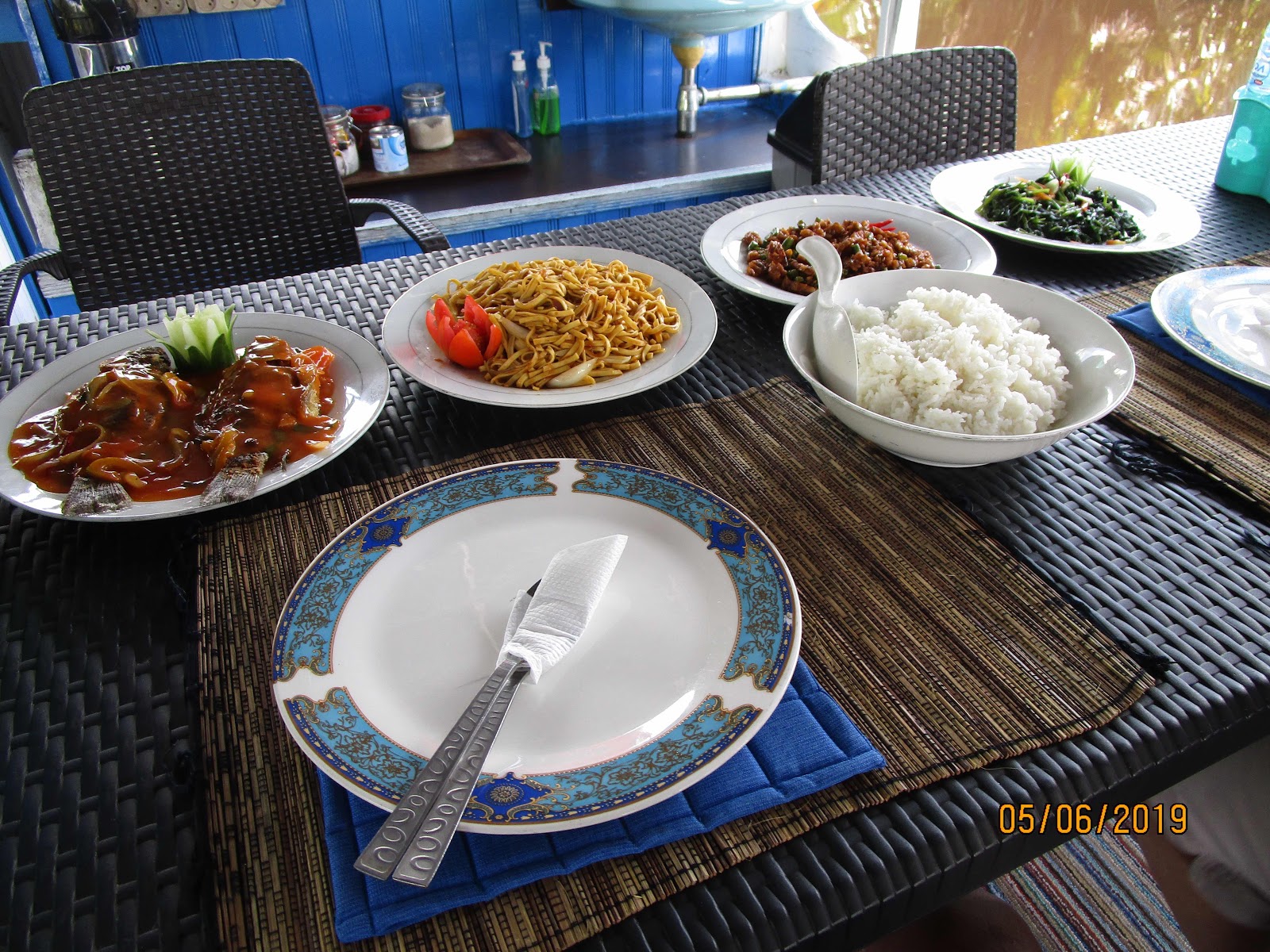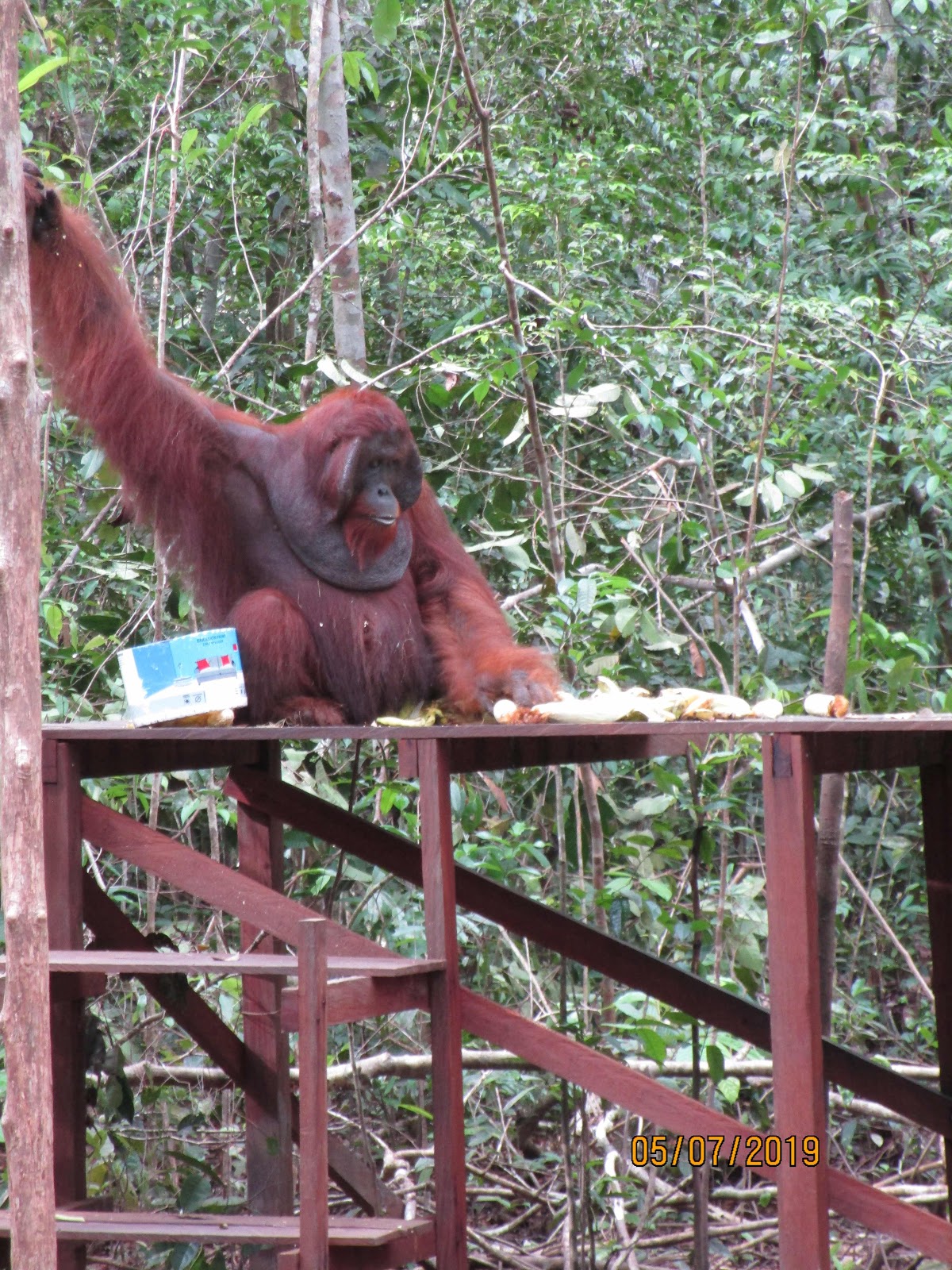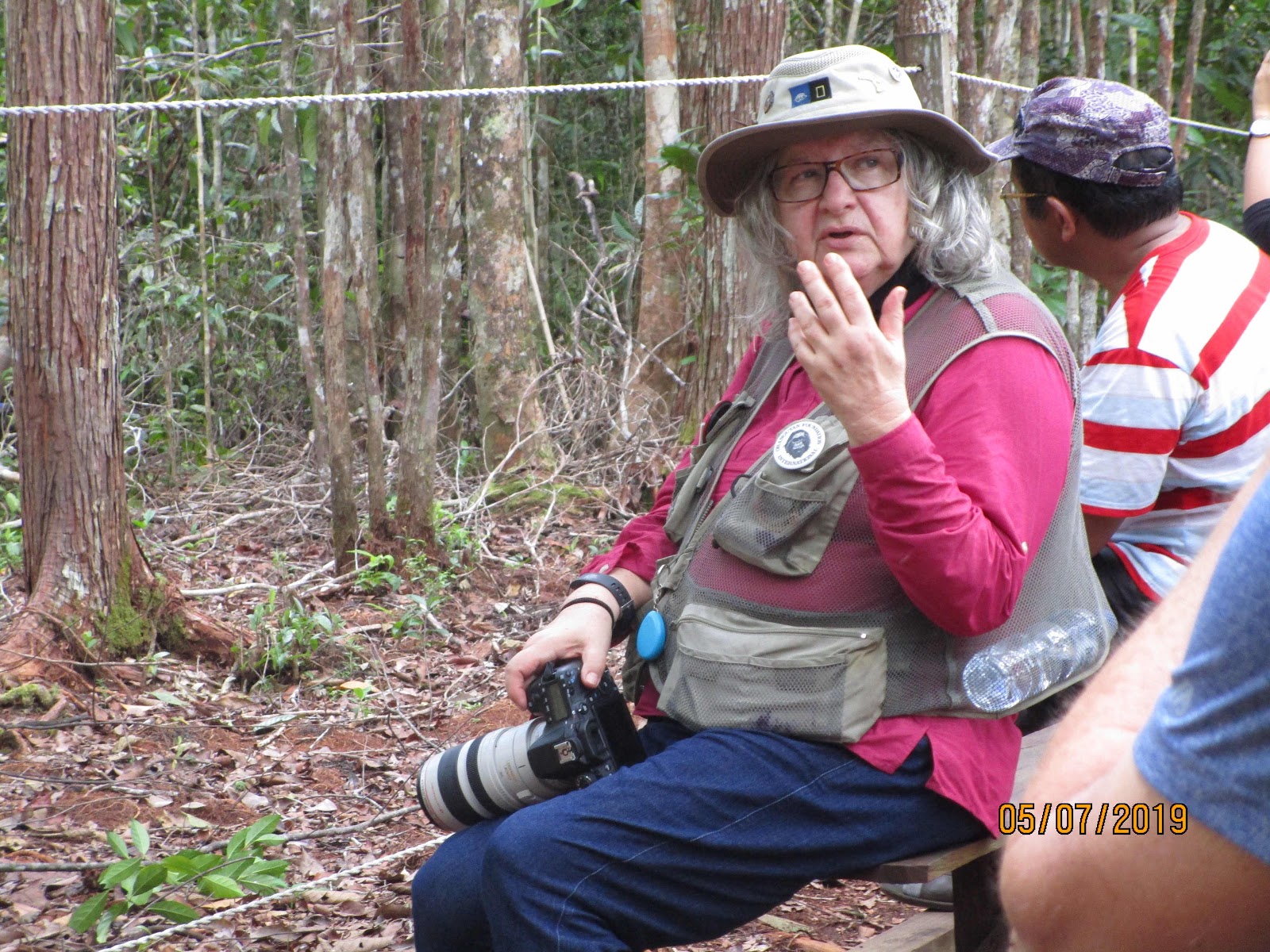The Orangutans of Kalimantan
We flew from Bali to Pangkalan Bun, Kalimantan (southern part of Borneo), landing in Iskandar Airport. We got a taxi to our hotel, the Swiss-Belinn, a hotel catering to business travelers that seemed nearly empty. One problem arouse immediately - the bar only served fruit drinks - no alcohol, no beer, no wine, nothing. Oh-oh! After all, it is a conservative Muslim region.
Eventually, I did manage to get one of the hotel staff, who had a friend (who had a friend), who somehow could locate, a couple of bottles of beers at an exorbitant price.
Another point worth mentioning is that we had arrived during the month of Ramadan, a time during which Muslims observe fasting from sunrise to sunset and pray a lot. This should be an interesting boat trip, we thought.
After breakfast, our guide Eddie, picked us up. Beer was one of the items of discussion - how many bottles did we want to bring along the cruise because they were not part of the package and had to be purchased separately. I was relieved to find out that getting the beers wasn’t a problem and that they were only $5 a bottle. In addition, they would be providing two bottles of rice wine.
We quickly arrived at the dock where our boat was berthed and were soon off on our adventure to see orangutans in the wild. The boat had a captain, his second mate, a cook and her trainee plus a deck hand. The crew all slept on the lower deck, while our accommodations were on the top deck, composed of a dining area, a mattress in the middle of the deck and some lounge chairs forward. We had our own bathroom on the lower deck. In the evening, (Eddie told us) the crew would set up a mosquito net around our mattress. It all looked quite cozy and very adequate. Incidentally, we already had started taking our malaria meds.
I failed to take a good photo of our boat, but the white/blue boat pictured above is what ours looked like.

The mosquito net with some mosquito fodder inside. In the morning, the crew disassembled the net.
The story of the orangutans of Kalimantan goes back several decades, when Dr. Birute Galdikas and her husband, Rod Brindamour began to study wild orangutans after being encouraged by Dr. Louis Leaky (who also had mentored Jane Goodall and Dian Fossey). The first camp to be developed by Galdikas was Camp Leaky, one of the three camps we visited.
In all, we visited three camps in Tanjun Puting National Park. These camps were the areas where Galdikas’ organization had set up to release orangutans that had been rescued from the wild. Their habitat has been disappearing due to palm farmers, who cut down and burn the orangutan’s forests/habitat and plant palms for palm oil.
Injured orangutans and orphaned babies are then brought to a sanctuary and kept there until they’re strong enough and ready to be released into one of the camps set up by the organization that Galdikas formed.
By the way, the word orangutan means “person of the forest” in Malay/Indonesian. Orangutans are only found in Borneo (Kalimantan) and Sumatra. Also, the term “brachiating” is used to describe the hand-over-hand movement that orangutans use to move through trees. They are well suited for this type of movement due to their short trunks, long arms and hook-like hands with long fingers.
The orangutans had feeding areas (that served as observation platforms for us) at each camp. The orangutans obtained food on their own too, but this was a sure thing and easy. They were fed bananas and corn (uncooked) while we were there. But the food they receive varies by season.
Every time we turned around, the crew had snacks or drinks for us to consume. These were scrumptious banana fritters. You couldn’t just have one!


A typical lunch or dinner. Rice was always on the menu.
Eddie often joined us on the upper deck to explain and discuss what we were going to be doing.

Milk was placed in the bowl, which the orangutans seemed to particularly enjoy.

When the alpha male would come down from the trees, every other orangutan would disappear.

We were very fortunate to see and meet Dr. Galdikas, pictured here. She was in her twenties when she began her studies of the orangutans and has pretty much devoted her entire life to saving them.

You can tell an older male by the cheeks surrounding his face.




At one point in the trip we stopped at a quaint little village and walked through it. Here mom is doing the laundry, dad is busy sawing wood for a building project, as the daughter looks on. The boat picked us up at the other end.

Muslim girls coming back from a day at school. The Muslims in Indonesia are pretty traditional in their way of dress, but it isn’t offensive to them for the tourists to wear western beach attire. This we confirmed with Eddie. The Muslims here are tolerant of other cultures.
Just to point out, though, that Bali is predominately Hindu, while the rest of Indonesia is Muslim. It’s the world’s most populous Muslim country, with over 300 million inhabitants.


After two nights and three days, our trip on the river ended. Eddie then took us to a village that wasn’t Muslim. They followed a hybrid religion, in which they fused Christianity with animist beliefs. They performed a ceremonial dance for us. The village receives support from the company we used to arrange the trip, Verada Borneo.
After the dance, they performed a ceremonial ritual in which a chicken looked like it was going to be offered to their gods. Thankfully, it was sparred. We then had to down some rice wine out of wooden, horn-like vessels.
Diane coming down the “gang plank” from the building where the ceremony was held. We were then taken to the airport, said our good-byes to Eddie and eventually flew back to Bali. What a phenomenal adventure it had been.
No comments:
Post a Comment